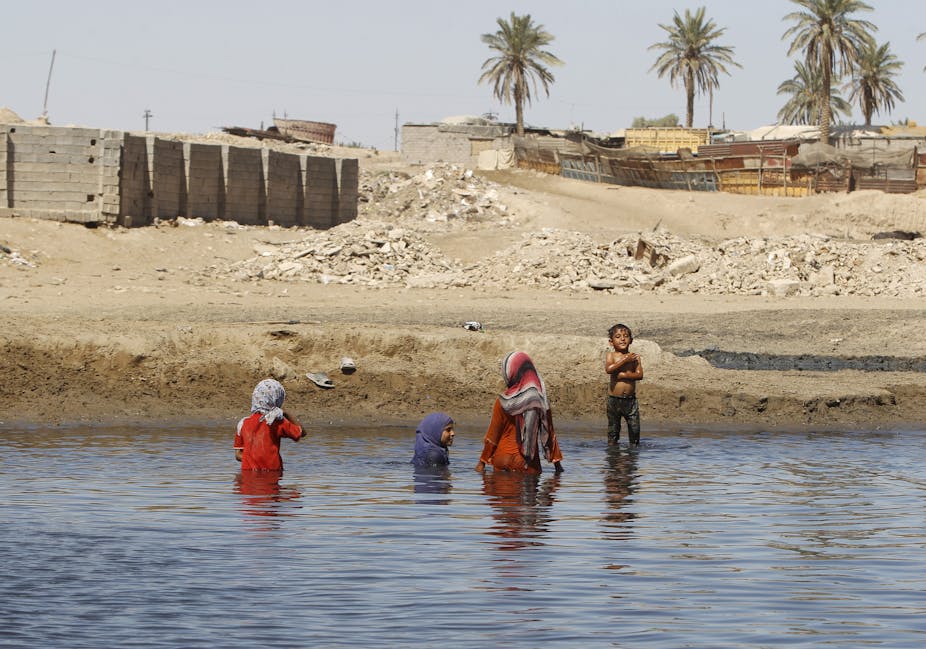There have been a spate of cholera outbreaks in a number of sub-Saharan countries including South Sudan, Mozambique and Malawi. Cholera can move from one country to another, killing hundreds of people in its wake. The Conversation Africa’s Health and Medicine Editor Joy Wanja Muraya spoke to Sam Kariuki on how to facilitate prevention, detection and better responses to public health threats associated with the disease.
Why are cholera outbreaks common and deadly in Africa?
Cholera is an acute diarrhoeal disease that can kill within hours if left untreated.
Each year 1.3 to 4.0 million cases of the illness occurs around the world, leading to between 21 000 to 143 000 deaths. About two thirds of these are in developing countries, mostly in sub Saharan Africa..
Cholera is caused by a gram negative bacterium called Vibrio cholerae usually transmitted through contaminated water or food in areas with poor sanitation and lack of clean drinking water.
Cholera is referred to as a disease of poverty because of the lack of social development in the areas in which it occurs.
The constant threat of natural catastrophes such as flooding and man made ones including civil unrest, make the management and prevention of cholera a huge challenge in most of Africa.
Several conditions on the continent make it fertile ground for the emergence and rapid spread of cholera. These include:
Inadequate access to clean water and sanitation facilities, especially in peri-urban slums, where basic infrastructure isn’t available.
Camps for internally displaced persons or refugees, where minimum requirements of clean water and sanitation have not been met. Crowded camps are fertile ground for a cholera outbreak.
Other humanitarian crises including flooding and earthquakes, civil unrest or war that causes disruption of water and sanitation systems.
What has been the progress of cholera outbreak responses in Africa?
Providing communal toilets, water vending points and improved sewage disposal in urban informal settlements have borne fruit in Kenya and Ghana.
But generally the lack of comprehensive programs for improvement of general public health especially for vulnerable populations like refugees and informal settlement residents is a challenge.
African countries have not achieved nearly enough. This is true when it comes to detecting primary cases and then isolating and treating them to arrest further transmission. This is particularly the case in refugee camps.
Very often efforts to provide clean drinking water, safe disposal of sewage and improved housing are poorly coordinated, halfhearted and mediocre.
The increase in population especially in urban informal settlements has been exponential over the last two decades posing a major challenge for public health as more people flock to the cities in search of jobs.
On top of this a lack of political maturity in many African countries as well as greed for political power has led to civil unrest and chaos which in turn has resulted in internal displacements of huge populations.
There are recommended vaccines that can minimise the spread of cholera. But they are rarely used as for most governments this not a priority.
Cost matters! Unlike cholera vaccine, most of the Expanded Programme on Immunisation vaccines are usually provided free through the GAVI initiative. Hence my suggestion that the cholera vaccine be made part of EPI initiative for endemic areas/regions.
Are there reasons for optimism?
Vaccines can prevent up to 65% of vulnerable populations from getting cholera. This also keeps away other food borne diseases such as typhoid, dysentery, E. coli and diarrhoea.
Currently there are three WHO pre-qualified oral cholera vaccines: Dukoral®, Shanchol™, and Euvichol® and they all require two doses for full protection.
Dukoral® is mainly used for travellers. Dukoral® provides approximately 65% protection against cholera for two years. Shanchol™ and Euvichol® are essentially the same vaccine produced by two different manufacturers. The current cost for a 2 -dose regimen is US$3·7 for Shanchol and Euvichol and $10·5 for Dukoral. It may be high time these vaccines were placed on the same level of importance as EPI-supported vaccines especially for endemic areas in order to increase affordability and faster roll-out.
There must be a minimum of two weeks delay between first dose and booster dose for these two vaccines.
But apart from better use and distribution of available vaccines, much more needs to be done. Investment is needed especially for vulnerable and at risk populations living in slums and refugee camps.
Surveillance and mapping cholera hot spots is critical to encourage prompt treatment and control measures when a primary case is identified.

